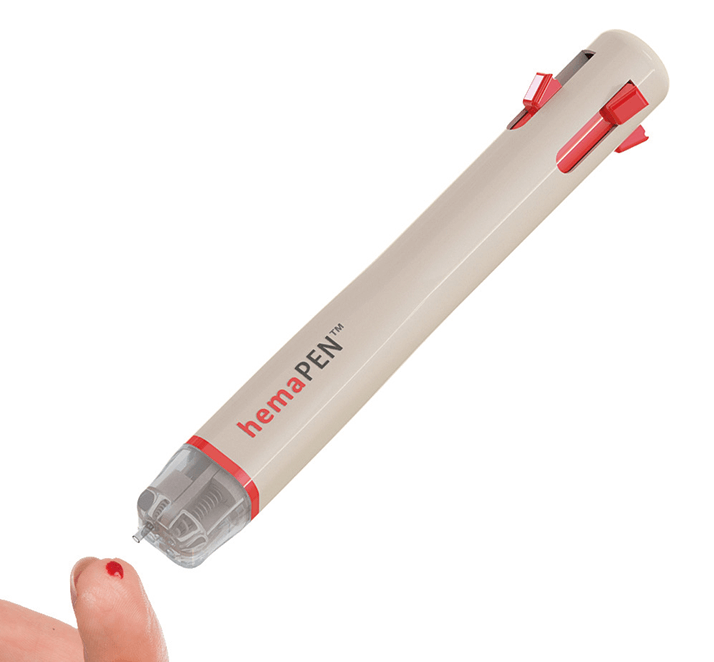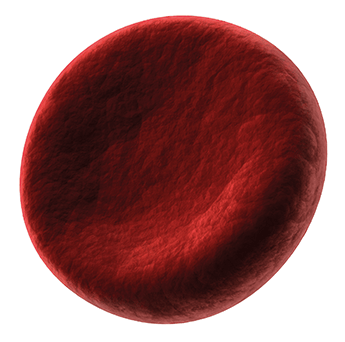
What? hemaPEN is a prototype blood collection and storage device, and the first product concept from ASTech (www.astech.org.au) – the ARC Training Centre for Portable Analytical Separation Technologies, which is part funded by the Australian Research Council, the University of Tasmania (UTAS), and Trajan Scientific and Medical. hemaPEN aims to harness the benefits of dried blood spot (DBS) sampling in an intuitive, safe, and portable format.
Who? hemaPEN is the result of research by Florian Lapierre, an ASTech post-doctoral research fellow from UTAS with a PhD in the field of sophisticated microfluidic device design. As with many good ideas, Lapierre was inspired by something really quite simple: “I was clicking my pen and thought, why have a retractable pen? So you can click when you need it, and not get ink everywhere when you don’t. hemaPEN takes the same form, collecting blood when you want to and safely storing it inside.” Lapierre says that working at ASTech has given him greater insight into developing thought processes beyond the traditional academic setting. “I am undertaking my industry placement at Trajan and have a senior mentor who encourages me to think about commercialization, which has changed the way I approach my research.” Why? hemaPEN allows people to collect an uncontaminated and precise volume of their own blood from a fingertip at home, eliminating the need to travel to a medical clinic. It’s easier for the clinic and less stress for the patient. How? After a simple finger prick, hemaPEN collects and stores an accurate microsample of blood using microfluidic technology that can be placed in the mail to an analytical laboratory. Next? Chief Executive Officer of Trajan (www.trajanscimed.com), Stephen Tomisich said, “Whilst this first iteration of hemaPEN provides a DBS format ready for Liquid Chromatography-Mass Spectrometry (LC-MS) analysis, we are now working on future versions with various interfaces, potentially with in-built sensing technology. Excitingly, we will soon commence trialling the device with patients to determine the impact of self-sampling to their lifestyles and wellbeing.”





